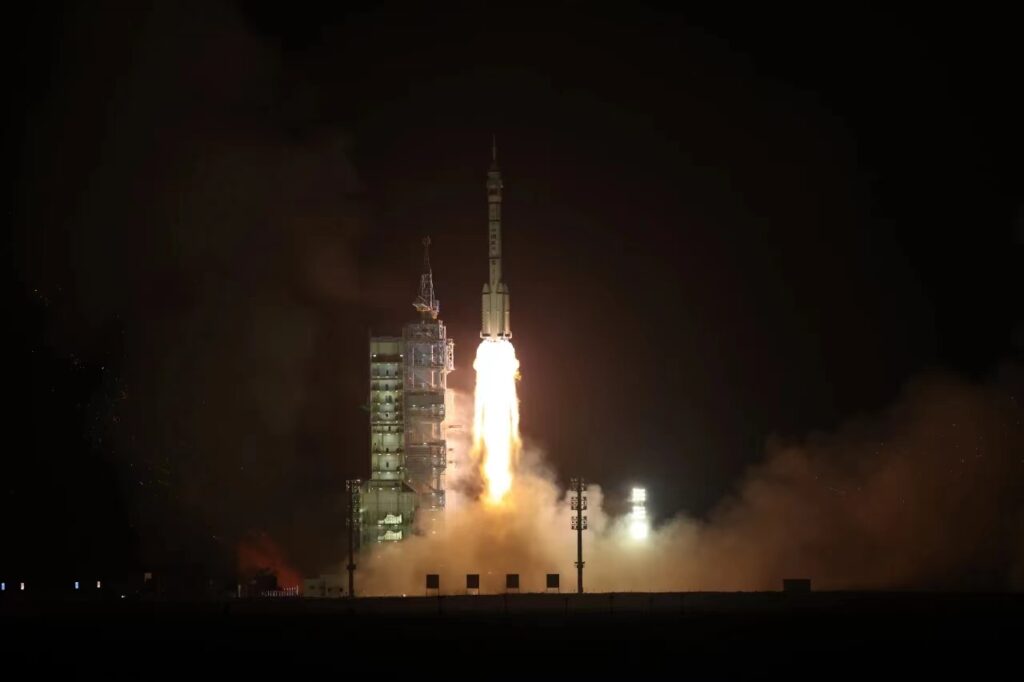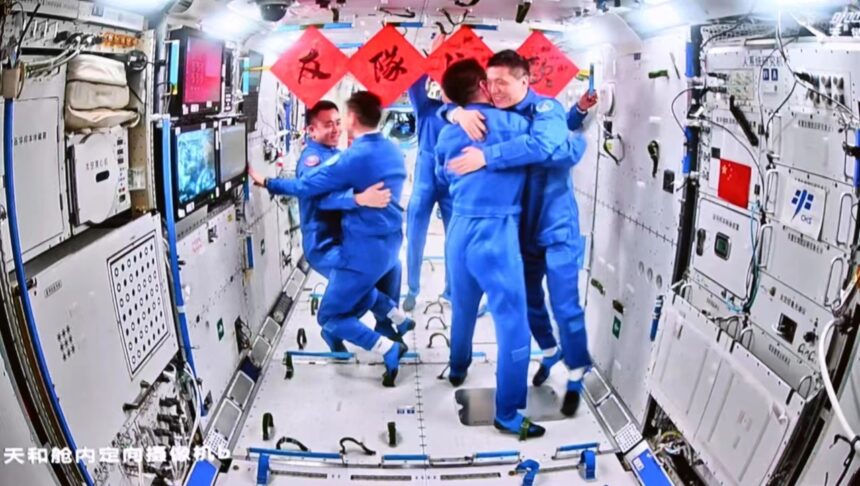Three astronauts from China’s Shenzhou-18 mission docked with the space station today, starting a new phase of scientific exploration. The Shenzhou-18 crew handover and new space experiments, led by Ye Guangfu, were greeted by Shenzhou-17 astronauts at 5:04 am Beijing Time. This meeting marks the fourth in-orbit crew handover for China’s space station.
The six astronauts will spend the next five days collaborating on a variety of scientific endeavors. This handover period is crucial for ensuring a smooth transition of duties and responsibilities within the station.

Ye Guangfu, a seasoned astronaut who previously participated in the Shenzhou-13 mission, will command the Shenzhou-18 crew. Joining him on this six-month mission are rookies Li Cong and Li Guangsu, marking their first venture into space.
Following a successful launch from Jiuquan Satellite Launch Center, Shenzhou-18 separated from its rocket. The spacecraft docked with the space station after a swift, automated maneuver.
The China Manned Space Agency (CMSA) has outlined an ambitious research agenda for the crew. Lin Xiqiang, deputy director of the CMSA, revealed at a press conference that over 90 experiments will be conducted across various scientific disciplines. These experiments delve into the realms of microgravity physics, space material science, life sciences, space medicine, and space technology.
One particularly intriguing experiment involves creating an “aquarium” and raising fish in zero gravity. The crew will observe how a simplified aquatic ecosystem, containing zebrafish and algae, reacts to the unique space environment. This research, done in a 1.25-liter volume, could significantly advance vertebrate cultivation in China’s space program. Success might bring joy to astronauts and help future crews enjoy sustainable protein from in-orbit fish farming.
Another scientific endeavor will focus on cultivating plants in space. This research aims to understand how microgravity impacts the function and gene expression of plant stem cells. Scientists believe this data will be instrumental in designing crops that can thrive in the harsh conditions of outer space. The crew will cultivate and monitor over 100 Arabidopsis seeds for approximately four weeks before freezing them at -80 degrees Celsius for later analysis upon their return to Earth.
The successful Shenzhou-18 crew handover and the commencement of these groundbreaking scientific experiments mark a significant milestone for China’s space program. Consequently, this collaborative effort paves the way for a deeper understanding of space and its potential to benefit life on Earth.

